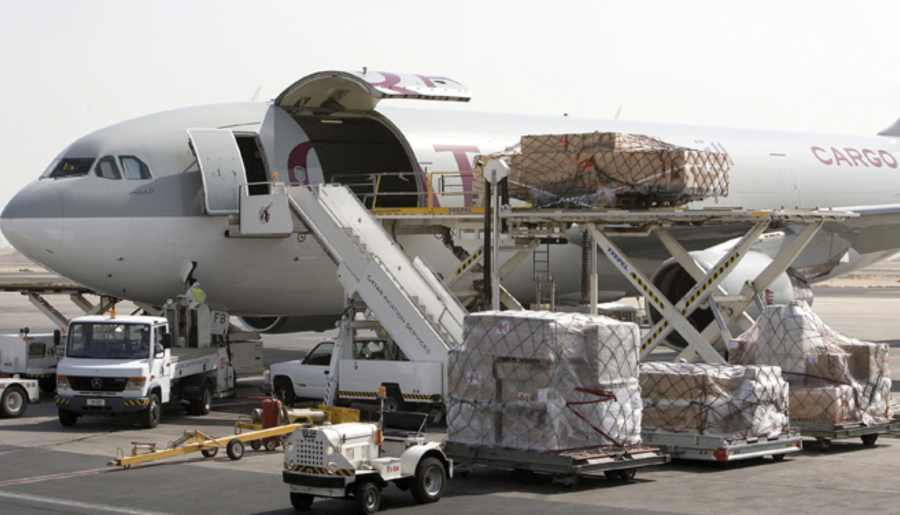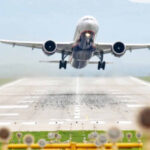There’s mounting pressure over the trapped $743m belonging to foreign airlines as the issue is taking its toll on cargo volumes coming to Nigeria, Daily Trust can report.
While the issue mostly affects passenger airlines which continue to groan over inability to repatriate their funds, it is said to be taking its toll on cargos coming into the country as big cargo airlines are beginning to feel the pinch.
Already two cargo airlines including Emirates and Cargolux have stopped flights to Nigeria.
However, stakeholders say the general lull in the economy which has negatively affected the purchasing power of the people has also contributed to the declining volumes of cargoes into the country.
- How Sardauna’s qualities guide me in discharging my responsibilities as NECO’s Registrar – Wushishi
- NNPC to raise crude reserve to 50bn barrels, explores Nasarawa oilfield
Daily Trust reports that the latest report by the International Air Transport Association (IATA) indicated that African airline’ cargo volumes declined by 9.5 percent in the month of January.
While the organisation representing global airlines last year reported cargo volumes returning to the pre-Covid level in 2021, the reverse was the case in 2023 as the year started on a soft note due to the existing economic headwinds.
In Nigeria, it is a double jeopardy for airlines operating into the country as they continue to struggle to repatriate their funds.
Airlines have devised several measures including closing lower inventories to travel agencies, making passengers to pay an average of N1.5m to N3m for an average economy ticket.
But some cargo airlines which are beginning to feel the pinch though partially, according to the Managing Director of the Skyway Aviation Handling Company (SAHCO) Plc, Mr. Basil Agboarumi.
He said, “Cargoes have been affected generally and all the airlines are complaining…
“Cargoes come to Nigeria because Nigerians like cargoes. But now you begin to ask questions what is their purchasing power. The economy has dropped. You cannot go and spend naira outside the country. What you spend is forex. With the cost of sourcing foreign exchange, it is a challenge.
“In Nigeria also people that import have not been too sure of what is the situation in Nigeria because of the election. People that would invest would be very careful to know what they would invest their money in. So these are some of the challenges that have affected cargoes.”
Also speaking, Founding Partner/Executive Director, General Sales and Solutions Management Limited, Babatunde Adeniji said the forex scarcity remains a thorny issue in the economy.
“It’s the same problem…you can’t change your naira revenue into dollars,” he said.
He said the Central Bank of Nigeria (CBN) Governor, Godwin Emefiele should be worried about it.
“Let the CBN Governor worry about it. The truth is that we are failing to prioritise it enough…it’s not like there is no USD, just that we are prioritising other use above our signed commitment.
“Economic experts have recommended we adopt one exchange rate and let the market decide while Government intervenes on occasion…What they call a crawling peg…”
The crawling peg exchange rate is a system of exchange rate adjustments in which a currency with a fixed exchange rate is allowed to fluctuate within a band of rates.
IATA recently cried out over the trapped funds, saying Nigeria is the number one country in the world where airlines funds were blocked.
A former President of the National Association of Nigerian Travel Agencies (NANTA), Mr. Bankole Bernard decried the situation which he noted is against the spirit and letters of the Bilateral Air Service Agreement (BASA) which makes it mandatory for airlines to repatriate their funds.
He said, “We have a choice in business; if the Bilateral Air Service Agreement (BASA) says their funds as it were, once they make sales in local currency, change it to foreign currency, we should be able to fulfill that obligations because reputation damage causes a lot and it is one of the things that made an airline like Emirates and Etihad Airways to leave when we could have had more airlines coming into the market, but they don’t want their funds to be trapped.

 Join Daily Trust WhatsApp Community For Quick Access To News and Happenings Around You.
Join Daily Trust WhatsApp Community For Quick Access To News and Happenings Around You.


